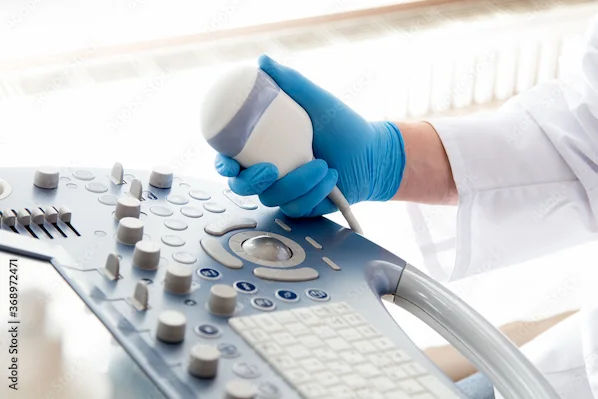Checking for Vitamin D Deficiency.
Know about vitamin D deficiency, causes, symptoms, and how to manage the deficiency for s

Written by Dr. Shaik Abdul Kalam
Reviewed by Dr. Rohinipriyanka Pondugula MBBS
Last updated on 3rd Aug, 2025

Introduction
Vitamin D is an essential nutrient that plays a crucial role in keeping our bones, muscles, and immune system healthy. However, many people unknowingly suffer from Vitamin D deficiency, which can lead to various health problems. If you often feel tired, experience muscle pain, or struggle with frequent illnesses, you might want to check your Vitamin D levels.
In this article, we’ll discuss:
What is Vitamin D deficiency?
Common symptoms to watch for
Causes and risk factors
How to diagnose and treat it?
Simple lifestyle changes to boost Vitamin D
What is Vitamin D Deficiency?
Vitamin D helps our body absorb calcium, which is necessary for strong bones and teeth. It also supports muscle function and the immune system. When your body doesn’t get enough Vitamin D, you may develop a deficiency, leading to weakened bones, fatigue, and other health issues.
Common Symptoms of Vitamin D Deficiency
Many people with low Vitamin D levels don’t realise it because the symptoms can be subtle or mistaken for other conditions. Here are some signs to watch for:
Fatigue and weakness – Feeling unusually tired even after adequate sleep.
Bone and back pain – Aches in bones, joints, or lower back.
Frequent illnesses – Getting sick often due to a weakened immune system.
Mood changes – Feeling low, anxious, or depressed.
Slow wound healing – Cuts or injuries take longer to heal.
Hair loss – Thinning hair or excessive hair fall.
Muscle pain – Unexplained muscle cramps or weakness.
If you experience these symptoms regularly, it may be time to check your Vitamin D levels.
What Causes Vitamin D Deficiency?
Several factors can contribute to low Vitamin D levels:
Lack of Sunlight Exposure – Our skin produces Vitamin D when exposed to sunlight. People who spend most of their time indoors, wear full-coverage clothing, or live in regions with limited sunlight are at higher risk.
Poor Diet – Not consuming enough Vitamin D-rich foods like fatty fish, eggs, and fortified dairy products.
Darker Skin Tone – Melanin reduces the skin’s ability to produce Vitamin D from sunlight.
Age – Older adults produce less Vitamin D naturally.
Obesity – Vitamin D gets stored in fat tissues, making it less available for the body.
Certain Medical Conditions – Digestive disorders (like Crohn’s disease) or kidney/liver diseases can affect Vitamin D absorption.
Consult Top Nutritionists For A Personalised Diet
How is Vitamin D Deficiency Diagnosed?
A simple blood test (25-hydroxy Vitamin D test) can determine your Vitamin D levels. Here’s what the results mean:
Normal: 30-50 ng/mL
Insufficient: 20-29 ng/mL
Deficient: Below 20 ng/mL
If your levels are low, your doctor may recommend supplements or dietary changes.
How to Improve Vitamin D Levels
1. Get More Sunlight
Spend 10-30 minutes in the sun (without sunscreen) at least 3-4 times a week.
Early morning or late afternoon sun is ideal.
2. Eat Vitamin D-Rich Foods
Fatty fish (salmon, mackerel, tuna)
Egg yolks
Fortified milk, cereals, and orange juice
Mushrooms (exposed to sunlight)
3. Take Supplements (If Needed)
Vitamin D3 (cholecalciferol) is the most effective form.
Always consult a doctor before starting supplements to determine the right dosage.
4. Exercise Regularly
Weight-bearing exercises (walking, jogging) help strengthen bones.
5. Maintain a Healthy Weight
Excess body fat can reduce Vitamin D availability.
When to See a Doctor?
If you suspect a deficiency, consider getting tested. Apollo 24|7 offers convenient Vitamin D tests that you can book online. A doctor can guide you on the right treatment plan based on your results.
Final Thoughts
Vitamin D deficiency is common but often overlooked. By paying attention to symptoms, getting tested, and making small adjustments to your diet and lifestyle, you can maintain healthy Vitamin D levels and improve your overall well-being.
Consult Top Nutritionists
Consult Top Nutritionists For A Personalised Diet

Dr. Ramalinga Reddy
General Physician
5 Years • MBBS MD General medicine
Bengaluru
PRESTIGE SHANTHINIKETAN - SOCIETY CLINIC, Bengaluru

Dr. Bhukya Pavan Kalyan
General Physician
5 Years • MBBS DNB Paediatrics
Bengaluru
PRESTIGE SHANTHINIKETAN - SOCIETY CLINIC, Bengaluru
Dt. Ila Sharma
Clinical Nutritionist
18 Years • Master in food & Nutrition
Gurugram
VIPUL GREENS - SOCIETY CLINIC, Gurugram
Dr Sumanth R
General Physician
2 Years • MBBS
Bengaluru
PRESTIGE SHANTHINIKETAN - SOCIETY CLINIC, Bengaluru
Ms. Lakshmi Tejasvi
Clinical Nutritionist
14 Years • M.Sc - Clinical Nutrition
Hyderabad
Vibgyor Nutri, Hyderabad
Consult Top Nutritionists

Dr. Ramalinga Reddy
General Physician
5 Years • MBBS MD General medicine
Bengaluru
PRESTIGE SHANTHINIKETAN - SOCIETY CLINIC, Bengaluru

Dr. Bhukya Pavan Kalyan
General Physician
5 Years • MBBS DNB Paediatrics
Bengaluru
PRESTIGE SHANTHINIKETAN - SOCIETY CLINIC, Bengaluru
Dt. Ila Sharma
Clinical Nutritionist
18 Years • Master in food & Nutrition
Gurugram
VIPUL GREENS - SOCIETY CLINIC, Gurugram
Dr Sumanth R
General Physician
2 Years • MBBS
Bengaluru
PRESTIGE SHANTHINIKETAN - SOCIETY CLINIC, Bengaluru
Ms. Lakshmi Tejasvi
Clinical Nutritionist
14 Years • M.Sc - Clinical Nutrition
Hyderabad
Vibgyor Nutri, Hyderabad




